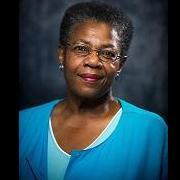-
Posts
2,393 -
Joined
-
Last visited
-
Days Won
91
richardmurray's Achievements
Single Status Update
See all updates by richardmurray
-
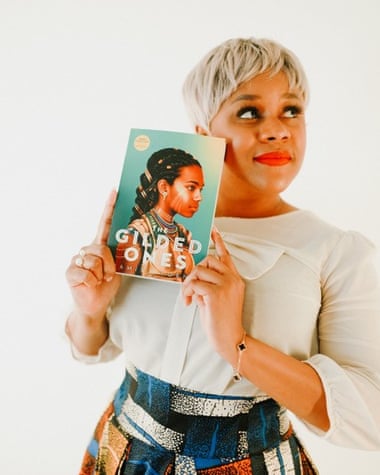
The article author begins by explaining how magic or myth primarily or only involving Black people was all about her environment growing up in Sierre leone, even with the war.
Then she says the following, I quote in brackets <
When I moved to the US in 1996, war was suddenly no longer a part of my life. But neither was the magic. Instead of goddesses and Amazons, there was now the legacy of slavery, civil rights and racial struggle. I was told that I was a Black person, and that Blackness came with a particular history and set of expectations, most of which I’d never heard of before. I’d only ever been Temne, my tribe in Sierra Leone. How was I supposed to understand this new identity?
>funny how someone from a country called Sierre Leon, which means mountain lion in a european tongue, started by white peoples of england to rematriate black people of africa into africa had no comprehension of being black before coming to the usa. I don't know if it says more about her or the adults about her growing up. BUt, she is wrong. The magic of the black community exist, alongside its history of enslavement-wars-coexistence to whites. Les Cennelles is magic. High John is magic. The DEvils Daughter is magic. The Gullah is magic. The seminoles, like Jonas Caballo, is magic. Now, was any of this magic on hollywood boulevard? no. Was all of this magic in every black home in the usa? no, most black people whose forebears were enslaved in the usa will never admit the black community in the usa after the war between the states tried to get rid of alot of its culture, collectively or individually, home to home.
I quote the article <
Worse, there were no more epics. Growing up, my father had explained to me that epics – especially fantasy epics – are the mythos of a culture: they determine how a people see themselves. But in the US, it seemed Black people weren’t afforded the privilege of crafting our own narrative in the fantastical sense. In every book, every film, every advertisement, Black people struggled. We were poor, we were uneducated, on drugs or the drug dealers. We were baby mamas, gangsters and prisoners. We were perpetual victims or perpetual predators, lurking on the fringes of society.
>
SHe used the word : seemed as in past tense. It did not seemed, it was true. from the 1500s to 1860s black people in uncontestable majority were disallowed by whites to read or write, by pain of death. 350 years solid of that kind of treatment seems to me a great disallowance, not merely a privilege but a right. Yes,most media in the USA, including today, is written/financed by white people who don't have a positive view of black people or at the least have a laborious opinion to black life in the usa. But, the usa is a white country. DW Griffith wasn't alone. But his argument is key. Griffith argued against the NAACP that every artist has the right to create what they want. Nothing stopped black people from making films providing negative caricature to whites. The problem isn't merely that white people in the usa dominated black people. But black leaderships choice to lead the black community on the grounds of aracial morality, had a cost.I quote again in brackets <
But this didn’t make any sense to me. I knew my history. Yes, some Black people had been slaves, but others had been queens, kings, adventurers, tricksters, country folk. Yes, there were huts and slave cabins, but there were also castles in Ethiopia, towering walls and streetlights in Benin, libraries in Timbuktu and fortresses in Great Zimbabwe. The richest man to ever exist, Mansa Musa, was African. The N’Nonmiton, the female warriors my father and grandmother had told me tales about when I was young, were African. There was more to Blackness than struggle.But in every Black book that won a medal, or every Black film that won an Oscar, there was always a Black person struggling against racial oppression. There are consequences to only lauding such portrayals. Perpetually tying the narrative of Black people and Blackness to slavery, colonisation and oppression meant that Black people – Black children especially – were denied the chance to see ourselves as heroes with agency over our worlds. And non-Black people were denied the chance to root for us, only feeling pity and, of course, relief that they were not Black.
>I notice she likes to place Black happiness in Africa alot. Black people in Haiti built the sans souci palace or the citadelle la ferriere, designed by a white man. Black people in India built a castle that still stands facing the indian ocean. Free black communities existed in the south western coast of mexico to the north eastern coast of south america. MAroons is the name in Jamaica. I can't deny it was hard for black people to be advertised as kings or queens in the american continent BUT we had country folk like free gunfighters, adventurers in every free community, tricksters like High john.
Her greatest problem is she confuses white awards placed on black people that suit white narratives or white made art interpretions to black people with Blackness.
... I admit my biggest problem is personal. I grew up in the USA, in NYC, by two black parents, and I always felt the black fantasy world was full of life. I don't accept the narrative from her or any black person that our fantasy wasn't around. Her parents or whomever raised her failed.I Quote her again <
This is the reason I became a writer. I wanted to create a fantasy world on par with the ones in my favourite books from childhood: The Lord of the Rings, the Chronicles of Narnia and Harry Potter. I wanted to put Black and brown people at the forefront of this world; and women, who have so often been pushed to the periphery of fantasy, at the very centre. In the tradition of my favourite Black female authors, such as Toni Morrison, Octavia E Butler and Zora Neale Hurston, I wanted to create spaces where I could hold up Black people, especially Black and brown women, to ensure that they too were seen through the lens of the fantastic, that they too could be fairies, mermaids or creatures of myth.
>I write simply what I want to write. I admit, I never wrote anything trying to make it on par with anything else. I have an idea, a world I want to create and I create it. Her work by her own admission is agenda filled. She wants to show everybody, black or nonblack, that she can make a fantasy world that will be adored by all, and at the center of it will be women of color. I am a black man so I don't have the advertised limits that go with being black plus woman.
...
Then she explains her work. I imagine if any one who read this gets this far, they will think I despise this , quite pretty, black woman. I am a black man and I do not:) but, I have issue when any black artists starts speaking that lie of black myth absence. It is black people's fault, black parents fault. Plain or simple. Black people from the Haitians to the Ashanti to the Negritos all have myth or legends. Yes, most are merely oral tradition. The least are in books out of print or in libraries. But, the black fantasy world exist. Trust me folks.
Photo citation
Namina Forna, author of The Gilded Ones. Photograph: Lillian Hathaway




.thumb.jpg.afc88dfee9cd2927de0c440601caac13.jpg)
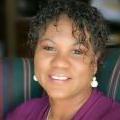
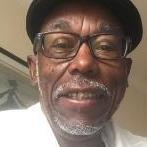
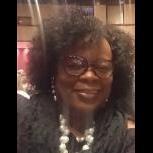
.thumb.jpg.ed52910791d00308abb8c218695bec88.jpg)
